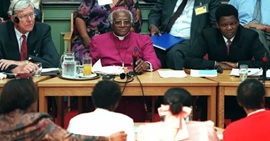From South Africa to Rwanda to Guatemala, nations have confronted their ugly pasts with government commissions and panels that unearthed secrets and meted out judgment.
Pretoria, June 15.– In the 1990s, trauma came uninvited alongside the triumphant entry of democracy into parts of Africa, Latin America and elsewhere, along with the Soviet Union’s collapse. The oppressive machinery that eccentric dictators fine-tuned through human rights abuses continue to wreak havoc today. 
South Africa, fresh from its abhorrent past as a haven of segregation regulated by the white-minority government, was the first to boldly confront that trauma headlong. Nelson Mandela, who served a 27-year jail sentence on his way to becoming the first president in the post-apartheid era, established the Truth and Reconciliation Commission (TRC) in 1994. Guatemala, Nigeria, Rwanda and other countries followed suit. Those countries’ experiences show that commissions are hardly a cure-all, but it’s a path worth considering as the United States encounters its own demons amid nationwide protests.
To navigate the way forward from state-sponsored violence — from slavery through Jim Crow to police brutality — state-sponsored dialogue is key. Africa’s conflicts are usually rooted in ethnic or religious identity or struggle for land and its resources; racism in America mirrors that. Beyond well-intended but meaningless acts of kneeling together with kente stoles and performative public renunciations of white privilege, America could revisit mass hurt by bringing both survivors and perpetrators to the same table.
South Africa’s TRC was headed by Archbishop Desmond Tutu and promised amnesty as more than 7,000 perpetrators confessed to crimes, with more than 20,000 recorded statements from victims over the course of seven years.
(...)
[ Full text ]
Comments powered by CComment